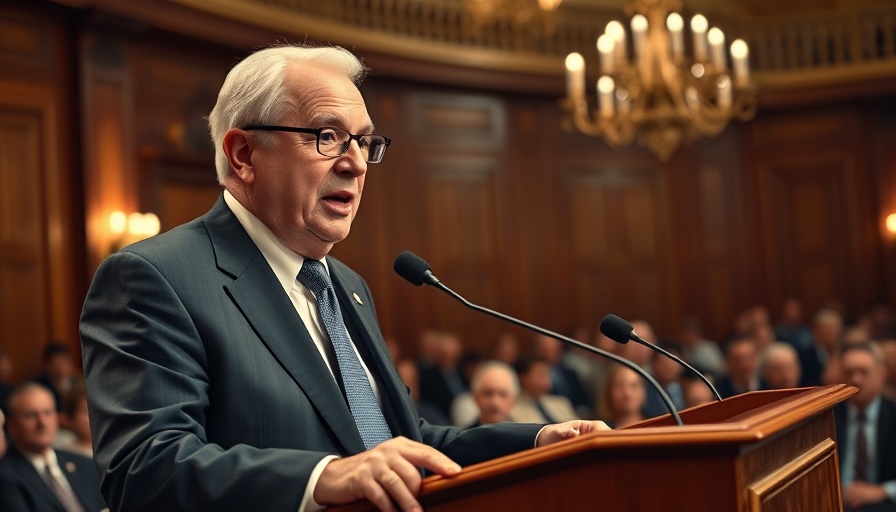
The Impartiality Imperative in Civil Service
The law stipulates that civil servants must remain impartial while performing their duties. This core principle is designed to ensure that the government treats all citizens equally, regardless of their political beliefs or personal identities. However, a growing trend within civil service practices is raising concerns among those who uphold Christian values, especially regarding participation in events like Pride parades.
In 'Civil Service participation in Pride breaches impartiality duty', the discussion dives into the critical issue of impartiality in civil service roles and the implications for public servants, prompting a deeper exploration on our end.
Understanding the Legal Landscape
Recent legal disputes, such as the case involving police participation in Pride, have highlighted the ramifications of ignoring this impartiality doctrine. Courts determined that participation in politically charged events compromises the perception of neutrality, leading to an important precedent that could shape future civil service policies. The belief is that civil servants, much like police officers, should uphold the law above personal convictions, fostering a culture of fairness.
Implications for Christian Values in the Public Sphere
For many Christians, this challenge is not merely legal; it is also a matter of faith. The encouragement for civil servants to display symbols, like rainbow lanyards or personal pronouns in emails, is seen as an endorsement of political agendas that may conflict with their personal beliefs. The implication that they must compromise their religious values to comply with political correctness raises profound ethical questions.
Responses from Faith Communities
Many faith leaders express concern that such participation can overshadow the principle of impartiality that is supposed to guide civil servants. They argue that the push for visibility within the LGBTQ+ community can alienate those who feel compelled by their faith to maintain traditional views on marriage and gender. Engaging in supportive displays during politically motivated events may unintentionally alienate constituents who uphold different values, thereby creating a breach in trust between public servants and the communities they serve.
Counterarguments and Diverse Perspectives
Supporters of civil service participation in Pride argue that inclusion and visibility are essential for fostering a diverse and accepting society. They contend that showing support for marginalized communities signifies progress and represents a commitment to equality. However, this perspective often doesn’t address the internal conflict faced by civil servants whose religious beliefs may contradict these ideals. Striking a balance between professional duties and personal convictions remains a contentious issue.
What’s Next for Civil Service and Christian Values
The future may be uncertain regarding civil service participation in public demonstrations, particularly those relating to political movements. A precedent has been set, and as different legal interpretations emerge, civil servants might find their roles evolving. It's crucial for individuals who cherish Christian values to engage in dialogue about these shifts and advocate for the preservation of impartiality in service to society. The intersection of faith and public duty requires thoughtful navigation to uphold principles while remaining responsive to societal change.
Actionable Insights for Engagement
For those committed to upholding Christian values in public service, it is essential to become informed and involved in discussions about civil service policies. Connecting with local faith communities can foster conversations that explore practical ways to support civil servants while maintaining their integrity. Advocating for policies that prioritize neutrality in public service may well ensure that the values of respect and fairness characterize our public institutions.
Conclusion: The Way Forward
The unfolding debate regarding civil service participation in Pride marches sheds light on a complex intersection of law, morality, and personal belief. As members of faith communities grapple with these issues, it’s paramount to remain engaged in both the legal landscape and the broader societal dialogue. Upholding Christian values in society demands reflection, dialogue, and action that respects both individual beliefs and the principle of impartiality that underpins civil service.
 Add Row
Add Row  Add
Add 








Write A Comment